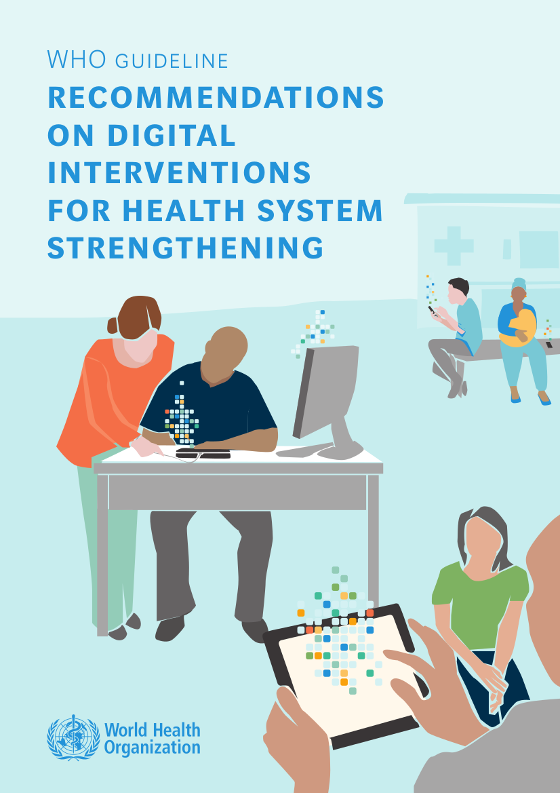 Digital health, or the use of digital technologies for health, has become a salient field of practice for employing routine and innovative forms of information and communications technology (ICT) to address health needs. The term digital health is rooted in eHealth, which is defined as "the use of information and communications technology in support of health and health-related fields". Mobile health (mHealth) is a subset of eHealth and is defined as "the use of mobile wireless technologies for health". More recently, the term digital health was introduced as "a broad umbrella term encompassing eHealth (which includes mHealth), as well as emerging areas, such as the use of advanced computing sciences in 'big data', genomics and artificial intelligence".
Digital health, or the use of digital technologies for health, has become a salient field of practice for employing routine and innovative forms of information and communications technology (ICT) to address health needs. The term digital health is rooted in eHealth, which is defined as "the use of information and communications technology in support of health and health-related fields". Mobile health (mHealth) is a subset of eHealth and is defined as "the use of mobile wireless technologies for health". More recently, the term digital health was introduced as "a broad umbrella term encompassing eHealth (which includes mHealth), as well as emerging areas, such as the use of advanced computing sciences in 'big data', genomics and artificial intelligence".
The World Health Assembly Resolution on Digital Health unanimously approved by WHO Member States in May 2018 demonstrated a collective recognition of the value of digital technologies to contribute to advancing universal health coverage (UHC) and other health aims of the Sustainable Development Goals (SDGs). This resolution urged ministries of health to assess their use of digital technologies for health [...] and to prioritize, as appropriate, the development, evaluation, implementation, scale-up and greater use of digital technologies,... Furthermore, it tasked WHO with providing normative guidance in digital health, including through the promotion of evidence-based digital health interventions.
Amid the heightened interest, digital health has also been characterized by implementations rolled out in the absence of a careful examination of the evidence base on benefits and harms. The enthusiasm for digital health has also driven a proliferation of short-lived implementations and an overwhelming diversity of digital tools, with a limited understanding of their impact on health systems and people’s well-being. This concern was highlighted most notably in the consensus statement of the WHO Bellagio eHealth Evaluation Group, which opened by stating: "To improve health and reduce health inequalities, rigorous evaluation of eHealth is necessary to generate evidence and promote the appropriate integration and use of technologies." While recognizing the innovative role that digital technologies can play in strengthening the health system, there is an equally important need to evaluate their contributing effects and ensure that such investments do not inappropriately divert resources from alternative, non-digital approaches.
Download: WHO Guideline: Recommendations on Digital Interventions for Health System Strengthening (1.857 KB).
Download from eHealthNews.eu: WHO Guideline: Recommendations on Digital Interventions for Health System Strengthening (1.857 KB).